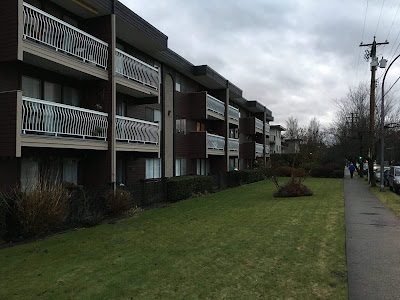Since I can remember, Langley City has had a policy to ensure that the number
of purpose-built rental housing units in our city never decreases; in fact,
the number of purpose-built rental units has increased over the years. If a
purpose-built rental building is ever redeveloped, the number of rental units
must be replaced one-for-one.
While this policy was in place for decades, the first significant
redevelopment project of a purpose-built apartment building occurred with the
Centreville Apartment at 20785 Fraser Highway in 2021. At the time, Langley
City Council and staff acted quickly to implement an interim tenant relocation
policy that required assisting tenants in relocating to another purpose-built
rental home in Langley City, Township, or Surrey and provided a small amount
of compensation above and beyond the provincial requirements.
At the time, Council acknowledged that we needed to enhance this policy to
increase compensation and provide additional support for tenants in finding
new homes. We adopted an enhanced policy in 2022, which
you can read in a previous blog post. This policy was in place when Council received our next major redevelopment
application for a purpose-built rental building, Pyramid Apartments, at 5360
-204th Street.
Based on the experience of the Pyramid Apartment project and the fact that
rents have gone sky-high, Council asked Langley City staff to develop a
significantly more robust policy that would maximize compensation, relocation
support, and the ability to return to the new building at a below-market
rental rate while still making redevelopment projects viable. The City hired a
land economist to help us develop this policy.
This first change was an increase in compensation as follows:
Up to 5 years tenancy: 2 months of current rent -> 4 months of current rent
6 to 10 years tenancy: 3 months of current rent -> 8 months of current rent
11 to 15 years tenancy: 4 months of current rent -> 12 months of current
rent
16-20 years tenancy: 5 months of current rent -> 14 months of current rent
Over 20 years tenancy: 6 months of current rent -> 16 months of current rent
As with our previous policy, we defined a “vulnerable” tenant. “Vulnerable”
tenants qualify for additional support. We broadened who qualifies for
additional support to people who have one or more of the following attributes:
- Are seniors aged 55 or older
-
Have a recognized disability pension or are considered disabled for income
tax purposes
-
Qualify for deep subsidy or Rent Geared to Income (RGI) Units, according to
BC Housing eligibility criteria
-
Are currently paying monthly rent that is equivalent to or less than average
monthly rents for RGI units in the City
If a “vulnerable” tenant is relocated to non-market priced rental housing,
their updated compensation is as follows:
Up to 5 years tenancy: 4 months of current rent -> 12 months of current
rent
6 to 10 years tenancy: 4 months of current rent -> 12 months of current
rent
11 to 15 years tenancy: 4 months of current rent -> 14 months of current
rent
16-20 years tenancy: 5 months of current rent -> 15 months of current rent
Over 20 years tenancy: 6 months of current rent -> 16 months of current rent
If a “vulnerable” tenant is relocated to market-priced rental housing, they
automatically get 16 months of rent as compensation, no matter what.
The updated policy also increased moving expense compensation.
When a building is redeveloped and its replacement building opens, tenants
have the right to return at 20% below the current market rent.
Finally, the policy has been enhanced to require developers to find a home for
tenants who are being relocated with rents at or less than CMHC’s average rent
in the City, suitable for the tenant’s needs, and with the same number of
bedrooms as the tenant’s current unit. For “vulnerable” tenants, the
relocation support goes further, requiring a developer to find non-market,
subsidized units.
I encourage you to read the full updated policy. We must take care of people in our community, and this updated policy
further supports people who may find themselves in a purpose-built rental
building undergoing redevelopment. Updating this policy was a key priority for
Council, and I’m happy it was adopted last night.




















